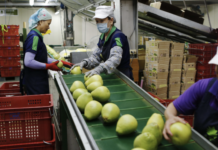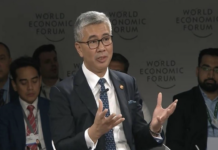PETALING JAYA, March 5 – Any indirect tax system will fail if business operators lack honesty and resort to profiteering instead of helping the nation meet the objectives of the increase to raise revenue, says an economist.
Barjoyai Bardai of Universiti Tun Abdul Razak said while there are cases of profiteers when new taxes are imposed in many countries, this practice is particularly rampant in Malaysia.
He said this was his biggest fear following the hike in the sales and service tax (SST) from 6 per cent to 8 per cent on certain sectors imposed from March 1.
It will not apply for food and beverages, telecommunication services, and logistics, including the delivery of goods and parking services.
“I have a different take on the government’s justification for the increase. However, this is not the time for such an argument as it is already in place,” he said in a statement.
“My biggest fear is the profiteering, especially by traders who are not affected by the SST hike. Any tax system will not succeed if profiteering is rampant.”
The domestic trade and cost of living ministry launched Ops Kesan on Saturday to ensure that traders do not take advantage of the SST hike and unreasonably increase the prices of products.
Barjoyai suggested that the government carry out a study on why some traders were resorting to profiteering knowing very well that it will mainly affect the households who come under the B40 and M40 categories.
He said the implementation of the goods and services tax (GST) in 2015 was a clear example of how dishonesty and poor enforcement of the tax regime failed in Malaysia while it thrived in countries like Singapore, Indonesia and Australia.
“When you introduce GST, there is bound to be a decrease in prices because it should eliminate tax on tax and any snowballing effect. With this, the prices of goods will come down as experienced in countries like Singapore, Australia and Indonesia.
“In Malaysia, we expected it to happen, normally after six months, but it never did. Why?
“It is because of profiteering as many businesses were not honest enough to reduce the prices and return the savings to the consumers,” he said.
The GST was replaced by the across the board 6per cent SST on Sept 1, 2018 after Pakatan Harapan dislodged Barisan Nasional from Putrajaya.
In any case, Barjoyai said there was a need for the government to reform the nation’s tax regime to look at more direct taxes instead of the numerous piece-meal indirect taxes being introduced every now and then.
“We know that Malaysia collects the lowest taxes in the region, amounting for 11.8 per cent of the gross domestic product (GDP). Many countries, especially those with rich natural resources, contribute 20 per cent towards the GDP.
“There only about two million individual taxpayers in the country. Therefore, there is a need to revamp the tax regime by studying the successful systems in some countries,” he said.



















